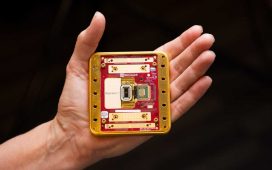
The Department for Science, Innovation and Technology (DSIT) is boosting its leadership team with new appointments spanning health, law, risk management, and marketing.
The new non-executive directors (NEDs) will join the DSIT departmental board and the Audit, Risk, and Assurance Committee (ARAC).
Professor Christopher Johnson will join DSIT in July as the department’s first chief scientific adviser (CSA). With more than 20 years of experience in engineering and physical sciences, with a focus on safety and security, his background includes esteemed fellowships with NASA and the US Air Force.
He also helped establish cyber security labs for the UK Civil Nuclear industry and is currently pro vice chancellor for engineering and physical sciences at Queen’s University Belfast.
“I’m delighted to be joining DSIT at a time of huge opportunity for the future wellbeing of this country. I’m committed to working across government to champion a ‘whole of society’ approach to innovation, ensuring we extend the fruits of scientific advancement to all corners of society,” Johnson said.
“Whilst it may be challenging, our mission to embrace disruptive technologies, leverage research to drive economic growth and grasp the opportunities for international collaboration will create opportunities to build a safe, secure, and thriving future for all.”
Johnson will join the team of the national technology adviser, Dr David Smith, and will work with other departmental CSAs under the leadership of the government chief scientific adviser, Professor Dame Angela McLean.
Meanwhile, Shonnel Malani will be reappointed to the lead NED role, providing strategic oversight and guidance to the department, with start-up board members Melissa Di Donato, Jason Chin and Saul Klein set to continue their roles on the new DSIT departmental board.
Here, they’ll be joined by new appointees Dominic Field and Liz Cohen, who will also chair DSIT’s new ARAC, where she’ll be joined by Bryan Ingleby, Gillian Leng, Mark Poulton and Vikas Shah.
“I am pleased to rejoin the department as DSIT’s lead non-executive director. In doing so, I welcome back Melissa Di Donato, Saul Klein and Jason Chin who have already provided incredible support and expertise to DSIT. We will be joined by experts Dominic Field and Liz Cohen, to form the new Departmental Board,” said Malani.
“I look forward to working closely with them and our incoming ARAC NEDs as we offer advice and assurance to the department as it delivers its priorities and positions the UK as a science and tech superpower.”
In its first year, DSIT has boosted investment in R&D to £19.4 billion, and is set to hit £20 billion this year. Late last year, it hosted the first ever global AI Safety Summit and has regained access to the £92 billion Horizon Europe research program.
“This exceptional group of leaders is a welcome addition to DSIT,” said science, innovation and technology secretary Michelle Donelan.
“This diverse team will place insight from the cutting-edge of industry and academia at that heart of our work, positioning us perfectly to deliver on our ambitious agenda, securing the UK’s place as a global powerhouse in science, technology, and innovation.”












